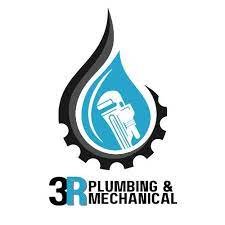Tankless Water Heaters vs. Traditional Systems: Which Is Right for Your Home?
When it comes to choosing a water heater for your home, the decision often boils down to two main options: traditional tank-style water heaters and modern tankless systems. Each has its own set of advantages and potential drawbacks, and understanding these can help you make the best decision for your household's needs, energy efficiency goals, and budget. Let’s break down the key differences and benefits of each type to help you determine which is the right fit for your home.
How Traditional Tank Water Heaters Work
Traditional water heaters store a specific amount of hot water (usually 30 to 80 gallons) in a tank and keep it heated until you need it. They use either gas or electricity to maintain the water temperature throughout the day, even when no one is using it. While this system has been the standard for decades, it comes with some inherent inefficiencies.
Benefits of Traditional Tank Water Heaters
Lower Initial Cost: Tank water heaters are generally less expensive upfront than tankless systems. This makes them appealing for homeowners on a tight budget.
Easier Installation: Since they’ve been the norm for years, installation is straightforward and often quicker than a tankless system.
Adequate for Small Households: For smaller families or homes with lower water demand, a traditional system may suffice without any noticeable inconvenience.
Drawbacks of Traditional Tank Water Heaters
Limited Hot Water Supply: Once the tank runs out of hot water, you’ll need to wait for it to refill and reheat—a common frustration during busy mornings.
Higher Energy Usage: Because they heat water continuously, even when it’s not needed, traditional tanks consume more energy, leading to higher utility bills.
Shorter Lifespan: On average, tank water heaters last around 10-15 years, whereas tankless systems often last up to 20 years.
How Tankless Water Heaters Work
Tankless water heaters, also known as on-demand water heaters, heat water only when you need it. When you turn on a faucet, cold water flows through the unit, where it’s instantly heated by a gas burner or electric element. The result? Unlimited hot water whenever you need it.
Benefits of Tankless Water Heaters
Endless Hot Water: Say goodbye to cold showers! Tankless systems provide a continuous supply of hot water, making them ideal for large families or homes with high water demand.
Energy Efficiency: Since they only heat water when needed, tankless water heaters are more energy-efficient, which can save you money on utility bills over time.
Space-Saving Design: Without a bulky tank, these systems are compact and can be mounted on walls, freeing up valuable space in your home.
Longer Lifespan: With proper maintenance, a tankless water heater can last up to 20 years or more, offering better long-term value.
Drawbacks of Tankless Water Heaters
Higher Upfront Cost: The initial cost of purchasing and installing a tankless system is higher than a traditional tank.
Installation Complexity: Depending on your home’s plumbing and energy setup, installation can be more complicated and require modifications.
Flow Rate Limitations: While tankless systems can provide hot water on demand, they have a limited flow rate. Running multiple showers and appliances simultaneously may strain the system.
Which System Is Right for Your Home?
Choosing between a tankless water heater and a traditional tank system depends on your household’s needs, budget, and long-term goals. Consider the following factors:
1. Household Size and Water Demand
Large Families: If multiple people frequently use hot water at the same time, a tankless system can be a better option because of its endless supply.
Smaller Households: A traditional tank system may be sufficient for homes with lower water demand.
2. Budget
Upfront Cost: If you’re looking for a more affordable initial investment, a traditional tank may be the way to go.
Long-Term Savings: While tankless systems cost more upfront, they can save you money over time through lower energy bills and longer lifespan.
3. Space Availability
Limited Space: If you’re tight on space, a tankless water heater’s compact design is a significant advantage.
4. Environmental Impact
Energy Efficiency: Tankless systems are more eco-friendly due to their on-demand heating, which reduces energy waste.
Why Choose 3R Plumbing & Mechanical for Your Water Heater Installation?
Whether you’re leaning toward a traditional tank system or a tankless water heater, the experts at 3R Plumbing & Mechanical can help you make the right choice. Our team provides professional installation services tailored to your home’s needs and budget. Plus, we offer financing options to make upgrading your water heater even easier.
Ready to upgrade your water heating system? Contact 3R Plumbing & Mechanical today to schedule a consultation or get a free estimate. Don’t forget to ask about our special offers on tankless water heaters!
